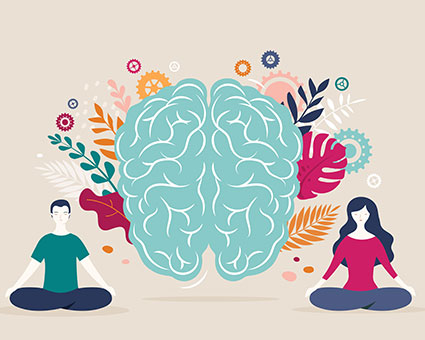Mindfulness Coaching in London
The Awakening

At Harvey Young Advanced Holistic Therapy, mindfulness coaching is offered as part of our integrative approach to wellbeing. Guided by a healthcare professional trained in movement, rehabilitation, and contemplative practice, sessions explore awareness, breathing, and posture to support recovery, stress management, and overall balance.
A practical, evidence-informed approach
If we’re fortunate, we discover a rhythm that feels right for us. But even then, it’s easy to chase the wrong things, to get caught in distractions that waste our time and attention. We can find ourselves absorbed by what doesn’t really matter, and happiness, even when life is going well, can still feel surprisingly out of reach.
Why Practice Mindfulness?
The reason is simple: because the quality of your mind determines the quality of your life.
Research shows that regular mindfulness practice may bring long-lasting changes, in attention, emotional balance, memory, even pain perception and these are matched by measurable changes in the brain.
But beyond science, mindfulness gives us a direct way to understand ourselves.
It’s not about escaping life; it’s about waking up to it.

Understanding the Process
Mindfulness is not a religious or mystical practice. It’s the skill of paying attention, noticing thoughts, sensations, and emotions without judgement or resistance. This helps you respond to life with greater clarity and steadiness rather than habitual reactivity.
Important note
Mindfulness coaching is a supportive wellbeing practice. It is not a substitute for medical or psychological treatment, and results vary for each individual.
Frequently Asked Questions
Can mindfulness coaching help reduce anxiety, fear, pain, and other challenging emotions?
Mindfulness coaching can help you develop greater awareness of thoughts, emotions, and bodily sensations, allowing you to respond to them with more calm and clarity. Research suggests that regular mindfulness practice may support improvements in stress management, emotional balance, and even the perception of pain. It does not remove difficult feelings altogether, but helps you relate to them in a healthier way, reducing their impact over time. Mindfulness is a supportive wellbeing practice, not a replacement for medical or psychological treatment.
What’s the goal of mindfulness practice?
The goal of mindfulness is not to stop thoughts or change who you are, but to see more clearly what is happening in each moment. By paying attention without judgement, you learn to recognise unhelpful habits of reactivity and create more space for calm, choice, and balance. In our clinic, mindfulness practice is used to support overall wellbeing, improving focus, resilience, and mind-body awareness alongside other forms of care such as chiropractic or movement-based rehabilitation.
What is non-dualistic meditation?
Non-dualistic meditation refers to a state of awareness in which the usual sense of separation between “observer” and “experience” begins to soften. Rather than trying to control thoughts or emotions, you simply rest in clear awareness, noticing that experiences come and go on their own. This approach is found in many contemplative traditions, including Vipassanā, and is taught in our mindfulness coaching as a practical way to cultivate presence, ease, and insight. It’s not religious or mystical, it’s a method of seeing experience directly, as it unfolds, with openness and curiosity.
Get Started Today
Contact us today to book your first appointment.
CONTACT US

